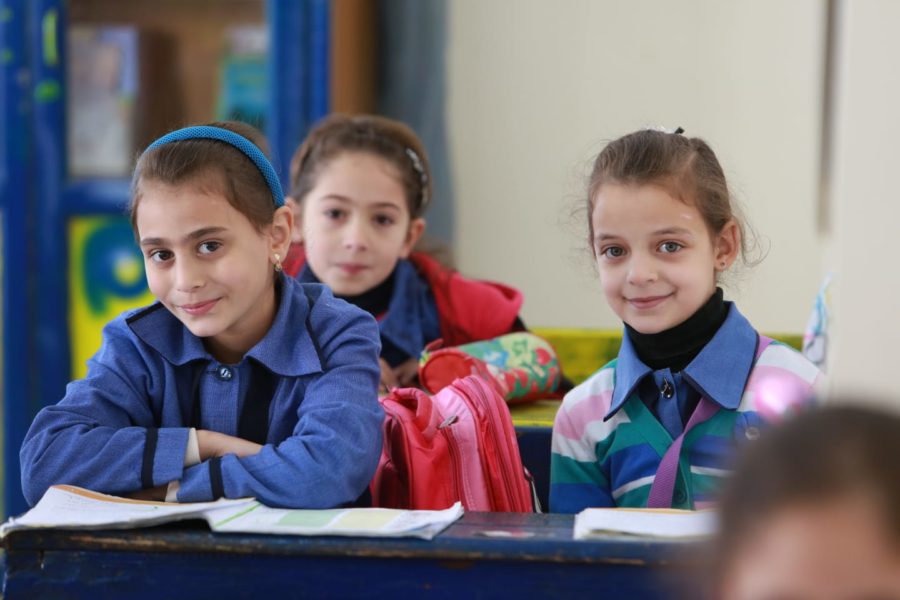29th September 2022
Prioritising foundational learning at the Transforming Education Summit

September is a crucial month in the calendar. In the UK, as in many countries, children have been going back to school. We have a new Prime Minister and Foreign Secretary. We have also seen the sad death of Her Majesty Queen Elizabeth II and the accession of His Majesty King Charles III.
And last week saw the UN Secretary General’s Transforming Education Summit (TES) in New York. A busy week full of meetings and events with Heads of State, Ministers of Education, think tanks, civil society, foundations, multilaterals, and other donor representatives. And importantly with youth advocates for better education globally.
A Commitment to Action on Foundational Learning
At the TES we launched the Commitment to Action. A push for all children to learn to read, do basic maths, and build socio-emotional skills by the age of ten. Opening up all further education opportunities. So far the Commitment to Action has been endorsed by Sierra Leone, Egypt and Bulgaria.
We are in a different world to last September. Thankfully, schools are no longer closed due to COVID-19 and children have returned to lessons. However, 244 million children are still out of school, and the existing pre-pandemic learning crisis is getting worse, not better. Last September when 19 countries were still facing country-wide school closures, we had agreed 2 new global objectives with our G7 partners. To get 40 million more girls in school; and 20 million more girls able to read by the age of 10 – both by 2026.
40 million more girls in school remains challenging, but possible. We must, however, retain our focus on the most marginalised; particularly ‘that’ girl I referenced in my previous blog. Twenty million more girls learning to read remains an essential stepping-stone to 12 years of quality education. But even harder given global learning trajectories are going backwards, not forwards.
The Commitment is an opportunity to build on those global objectives and to prioritise foundational learning for all, including marginalised girls, building on national governments’ own targets. The good news is that a focus on foundational learning for all is also what is needed to tackle the impact of COVID-19 on education, to achieve national benchmarks set out by national governments to achieve Sustainable Development Goal (SDG) 4 and to halve learning poverty globally by 2030.
Improved learning outcomes are essential for positive decisions about girls’ education as girls and their families weigh up the benefits and costs of education. Parents need to see the benefits.
Foundational learning is about prioritising teaching the fundamentals. What children need order to thrive and make progress through their education. This alone will not solve all the problems girls face nor ensure gender equality. But these skills are the essential first step for girls and their parents to see the value of education to girls.
For the Commitment to lead to action and change, support to all children must start early. National governments need to be in the driving set to ensure their education systems are underpinned by an inclusive vision and ambition for all children. It requires governments and all education partners to sign up and come together to drive unprecedented, rapid progress in global learning outcomes; to reduce global learning poverty to the lowest level ever.
Launch of IFFEd
There is, however, a huge financing gap. The innovative International Finance Facility for Education (IFFEd) was launched at United Nations Transforming Education Summit. IFFEd will increase financing to education through sovereign donor guarantees and grants to leverage up to seven times what donors put in, focusing on foundational learning. IFFEd will work through Multilateral Development Banks to provide affordable financing for Lower Middle-Income Countries (LMICs) to transform their education systems and improve learning outcomes for children. LMICs are host to the largest numbers of out-of-school children and children not learning. Providing suitable education financing is critical to address the global learning crisis.
What next?
There is still time to sign up to the Commitment to Action – see guidance on how to endorse the Commitment and some of the most frequently asked questions.
As we look ahead to implement the action needed together, we will not stop focusing on the most marginalised and we hope you will join us to reach ‘that girl’ too – the girl born into poverty; perhaps in a remote area, born into conflict, on the frontline of the effects of climate change, malnourished, living with a disability. Or any similar combination of vulnerabilities. Education is a human right for all, not just for the privileged. We must ensure she has what she deserves – to be educated, make choices, and fulfil her potential.
If we focus on that girl, then what will work for her can work for all children.